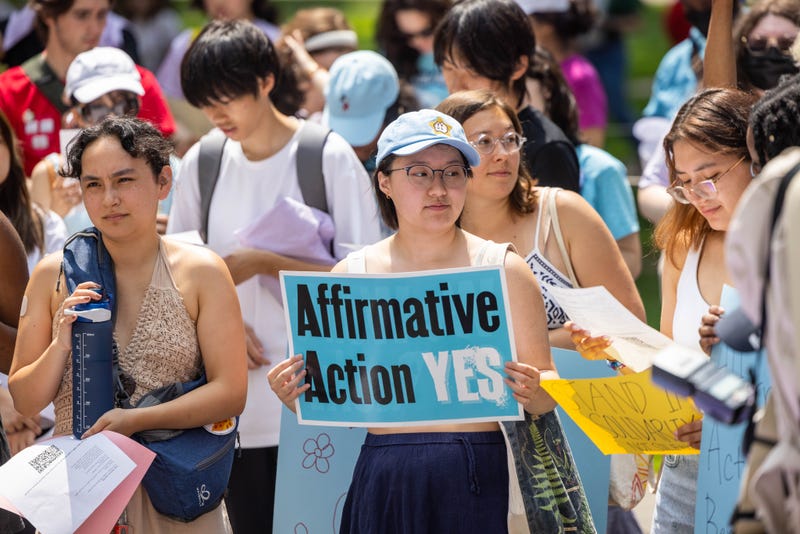
PHILADELPHIA (KYW Newsradio) — The Supreme Court has been racking up a number of controversial decisions.
It first started last year with the overturning of Roe v. Wade, reversing a constitutional right that had been in place for nearly 50 years. Then early last month, the high court ended affirmative action, prohibiting race-conscious admissions in colleges.
A recent poll found 59% of registered voters disapprove of SCOTUS — the lowest approval rating since 2004.
Controversial decisions aside, do key legal principles, like standing or precedent still matter? And if they don’t, how do professors go about teaching the law?
“I understand that lawyers are very important parts of society, so on that level, it’s important for me to probe my students on more difficult questions of morality and culture,” said Laura Little, the James G. Schmidt Chair in Law at Temple University's Beasley School of Law.
She said these recent rulings aren’t changing how she teaches the law entirely, just how she takes on certain topics.
“I asked students to look at Dobbs. ‘Do you believe the rhetoric about states' rights? Or do you believe in fact that it's just a smokescreen for implementing a moral and religious judgment that was not previously in place?’,” she said. “I try to come at it from that angle … because otherwise, it appears as though nothing matters in law except for what president appointed them.”
She talks about the history of controversial SCOTUS decisions and more on the recent episode of KYW Newsradio In Depth.
Listen to the full conversation in the player below, on the Audacy app or wherever you get your podcasts.
